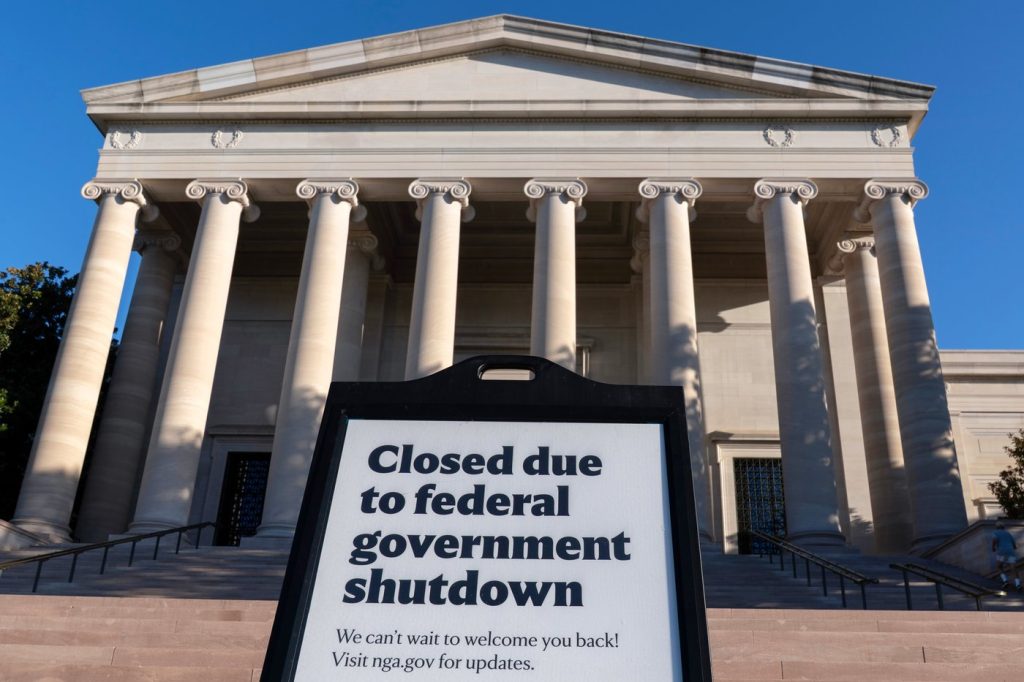Top Stories
Federal Workers Face Uncertainty After Longest Shutdown Ends

UPDATE: The longest government shutdown in U.S. history has officially ended, leaving federal workers grappling with the emotional aftermath of their sacrifices. As of October 1, 2023, hundreds of thousands are finally poised to receive back pay, but many are questioning whether their struggles were worth it.
Jessica Sweet, a Social Security claims specialist and union steward with AFGE Local 3343 in New York, cut back on essentials just to survive during the shutdown. She drank only one coffee a day and skipped meals, relying on credit cards to cover gas for her commute. “It shakes the foundation of trust that we all place in our agencies and in the federal government to do the right thing,” Sweet lamented.
The shutdown, which lasted over six weeks, impacted approximately 670,000 federal employees who were furloughed and another 730,000 who worked without pay, according to the Bipartisan Policy Center. The crisis not only affected federal workers but also caused widespread disruptions, including flight cancellations and cuts to food aid, pushing lawmakers to reach a bipartisan agreement.
The deal came after several Democratic senators negotiated funding to reopen the government without extending health insurance subsidies under the Affordable Care Act. “Stress and hunger are great tactics for traumatizing people,” Sweet added, expressing frustration over the political dynamics that put workers’ livelihoods at risk.
Adam Pelletier, a field examiner with the National Labor Relations Board and a furloughed worker, echoed Sweet’s sentiments, stating, “The agreement almost feels like the Charlie Brown cartoon where Lucy holds the football and pulls it out from them.” He felt like a pawn in a political game, having prepared financially for the shutdown since March.
Elizabeth McPeak, an IRS employee from Pittsburgh and vice president of the National Treasury Employees Union Chapter 34, conveyed the emotional toll of the shutdown. “A month without pay is a long time to go,” she said, revealing that many colleagues depended on food banks and asked landlords for leniency on rent payments.
As federal workers gear up to return to their jobs, the sentiment remains bittersweet. Many are relieved to receive back pay, but the scars of the shutdown linger. “This has been the worst time in my 20 years to be a federal employee,” McPeak declared, highlighting the deep impact this crisis has had on the workforce.
The end of the shutdown brings a sigh of relief but also a cautious outlook among federal employees. With the political landscape remaining volatile, many are left questioning if future shutdowns are inevitable, making their sacrifices feel even more poignant.
For ongoing updates on the federal government shutdown and its aftermath, follow the AP’s coverage at https://apnews.com/hub/government-shutdown.
-

 Politics7 days ago
Politics7 days agoSecwepemc First Nation Seeks Aboriginal Title Over Kamloops Area
-

 World4 months ago
World4 months agoScientists Unearth Ancient Antarctic Ice to Unlock Climate Secrets
-

 Entertainment4 months ago
Entertainment4 months agoTrump and McCormick to Announce $70 Billion Energy Investments
-

 Lifestyle4 months ago
Lifestyle4 months agoTransLink Launches Food Truck Program to Boost Revenue in Vancouver
-

 Science4 months ago
Science4 months agoFour Astronauts Return to Earth After International Space Station Mission
-

 Technology3 months ago
Technology3 months agoApple Notes Enhances Functionality with Markdown Support in macOS 26
-

 Top Stories1 month ago
Top Stories1 month agoUrgent Update: Fatal Crash on Highway 99 Claims Life of Pitt Meadows Man
-

 Sports4 months ago
Sports4 months agoSearch Underway for Missing Hunter Amid Hokkaido Bear Emergency
-

 Politics3 months ago
Politics3 months agoUkrainian Tennis Star Elina Svitolina Faces Death Threats Online
-

 Politics4 months ago
Politics4 months agoCarney Engages First Nations Leaders at Development Law Summit
-

 Technology4 months ago
Technology4 months agoFrosthaven Launches Early Access on July 31, 2025
-

 Top Stories3 weeks ago
Top Stories3 weeks agoFamily Remembers Beverley Rowbotham 25 Years After Murder





















